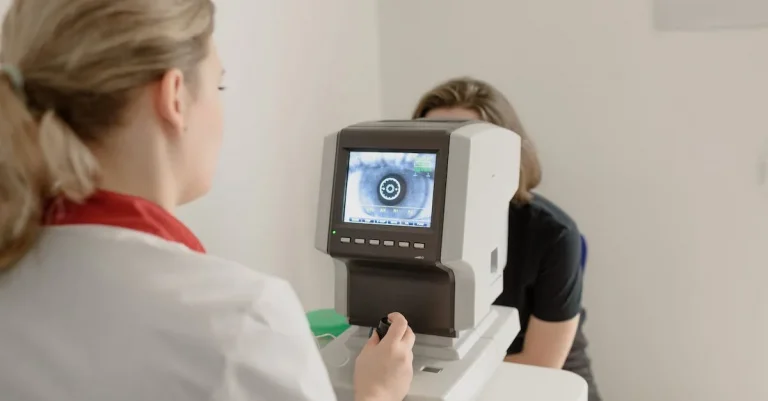How To Plan Your Move From Massachusetts To Florida: A Complete Guide
Considering moving from Massachusetts to the sunshine state of Florida? The process takes careful planning and preparation. In this comprehensive guide, we’ll walk you through everything you need to know to make your interstate move smooth and hassle-free.
If you’re short on time, here are the key things to do when planning a move from Massachusetts to Florida: get copies of important documents, compare moving options, time the move to avoid winter, change your address, update accounts, and research Florida state residency laws.
Important Documents and Records to Update
When planning a move from Massachusetts to Florida, it’s important to update your important documents and records to ensure a smooth transition. Here are some key areas to focus on:
Driver’s License and Registration
One of the first things you’ll need to do after moving to Florida is to update your driver’s license and vehicle registration. You’ll need to visit the local Department of Motor Vehicles (DMV) office to apply for a Florida driver’s license and register your vehicle in the state.
Make sure to bring all necessary documents, such as your current driver’s license, proof of residency, and vehicle registration. This process is essential to ensure that you are legally allowed to drive in Florida.
Voter Registration
If you are a registered voter in Massachusetts, you’ll need to update your voter registration when you move to Florida. Registering to vote in your new state is important to ensure that you can participate in local and national elections.
You can easily update your voter registration by visiting the Florida Division of Elections website or contacting your local Supervisor of Elections office.
Bank Accounts and Credit Cards
Don’t forget to update your bank accounts and credit card information when you move to Florida. Contact your current bank to inform them about your change of address and update your contact information accordingly.
If your bank doesn’t have branches in Florida, you may need to open a new account with a local bank. Additionally, update your address with any credit card companies to ensure that your bills and statements are delivered to the correct address.
Insurance Policies
When moving to Florida, it’s crucial to update your insurance policies to ensure that you have the appropriate coverage in your new state. This includes updating your auto insurance, homeowner’s or renter’s insurance, and any other insurance policies you may have.
Contact your insurance provider to inform them about your move and update your policy accordingly to meet Florida’s requirements and regulations.
Medical, Dental, Vision Records
It’s important to transfer your medical, dental, and vision records when you move to Florida. Contact your healthcare providers and request to have your records transferred to your new healthcare providers in Florida.
This will ensure that your medical history is readily available and that you can continue to receive the necessary care without any interruptions.
Remember, updating your important documents and records is crucial when planning a move from Massachusetts to Florida. By taking the time to update these documents, you’ll be able to settle into your new home more easily and avoid any potential issues or delays.
Comparing Moving Options: DIY, Pods, Moving Company
Renting a Moving Truck for DIY Move
If you enjoy taking matters into your own hands and have some experience with driving large vehicles, renting a moving truck for a DIY move might be a great option for you. Renting a moving truck allows you to have full control over the moving process and can potentially save you money compared to hiring professional movers.
However, it’s important to consider the logistics of driving a large truck, especially if you’re not familiar with the area you’re moving to. Additionally, you’ll need to handle all the packing, loading, and unloading yourself, which can be physically demanding and time-consuming.
When renting a moving truck, make sure to choose a reputable company and ask about their insurance options to protect your belongings during transit. It’s also a good idea to reserve the truck well in advance, especially during peak moving seasons, to ensure availability.
Using Portable Storage Containers
Portable storage containers, commonly known as PODs, have become increasingly popular for long-distance moves. These containers are delivered to your current location, allowing you to pack at your own pace. Once you’re ready to move, the container is picked up and transported to your new home.
This option offers convenience and flexibility, as you can keep the container at your new location for as long as you need to unload.
Using portable storage containers eliminates the need for driving a large truck and can be less physically demanding than a DIY move. It also provides a secure storage solution if you need temporary storage during the moving process.
However, it’s important to research different POD companies and compare prices and services before making a decision. Additionally, consider the accessibility of your new location, as some neighborhoods or apartment complexes may have restrictions on where containers can be placed.
Hiring Professional Long-Distance Movers
If you prefer a hands-off approach and want to minimize the stress and physical labor of moving, hiring professional long-distance movers is the way to go. Professional movers have the expertise and experience to handle all aspects of your move, from packing and loading to transportation and unloading.
They have the necessary equipment and manpower to efficiently and safely handle your belongings.
When hiring professional movers, it’s crucial to choose a reputable and licensed company. Research different moving companies, read reviews, and get multiple quotes to compare prices and services. Consider factors such as insurance coverage, additional services (such as packing and unpacking), and the availability of a dedicated moving coordinator to guide you through the process.
Keep in mind that hiring professional movers may be the most expensive option, but it can save you time, energy, and potential headaches. It’s essential to plan ahead and book your movers well in advance, especially during peak moving seasons.
Timing Your Relocation to Florida
When planning your move from Massachusetts to Florida, timing is crucial. Consider the following factors to ensure a smooth and successful transition to the Sunshine State.
Avoiding Snow and Winter Weather
If you’re looking to escape the cold winters of Massachusetts, timing your move to Florida is essential. The winter months in Massachusetts can be harsh, with heavy snowfall and freezing temperatures. By planning your move during the spring or summer, you can avoid the inconvenience and potential hazards of winter weather conditions.
Plus, who wouldn’t want to trade shoveling snow for lounging on the beach?
Coordinating With Housing Timelines
Another important aspect of timing your move to Florida is coordinating with housing timelines. Whether you’re buying or renting a new home, it’s crucial to align your move-in date with the availability of your new residence.
Research and plan in advance to secure your desired housing option and ensure a seamless transition. This will help you avoid the stress of temporary accommodations or overlapping lease agreements.
Moving During Off-Peak Times
To make your move more cost-effective and less hectic, consider scheduling it during off-peak times. Moving companies often have lower rates during weekdays or non-peak seasons. By avoiding weekends, holidays, and popular moving periods, you may be able to save money and secure the services of your preferred moving company.
Additionally, moving during off-peak times can help you avoid heavy traffic and long wait times.
Remember, planning your move from Massachusetts to Florida requires careful consideration of timing. By avoiding winter weather, coordinating with housing timelines, and choosing off-peak times, you can have a stress-free and enjoyable relocation experience.
Handling Utilities, Memberships and Subscription Transfers
When planning a move from Massachusetts to Florida, one of the essential tasks to consider is handling utilities, memberships, and subscription transfers. This involves terminating services in your current location and setting up new ones in your new home.
Here are some important points to keep in mind:
Terminating and Starting New Service
Before moving, it’s crucial to contact your current utility providers and inform them about your upcoming move. This includes electricity, water, gas, and internet services. Check with each provider about their specific procedures for cancelling service and schedule the disconnection for a day after you move out.
Be sure to take final meter readings if required.
Once you arrive in Florida, you’ll need to set up new utility services. Research and contact the local providers well in advance to ensure a smooth transition. Check if any deposits or documentation are required and schedule the installation dates accordingly.
It’s recommended to do this at least a week before your move to avoid any inconveniences upon arrival.
Gym, Club and Association Memberships
If you currently have memberships to gyms, clubs, or associations in Massachusetts, you’ll need to determine whether those memberships can be transferred to Florida or if you need to cancel them. Some national chains may have locations in both states, allowing you to transfer your membership.
Contact the respective establishments and inquire about their policies regarding membership transfers. If you need to cancel, check if there are any penalties or cancellation fees involved.
Once you’re settled in Florida, explore the local fitness centers, clubs, and associations to find new memberships that suit your needs. Take advantage of any trial periods or special offers to ensure you make the right choice.
Magazine Subscriptions and Online Accounts
When it comes to magazine subscriptions and online accounts, it’s important to update your address and contact information. Contact the respective publishers or service providers and inform them about your move. They may have specific procedures in place for address changes or transfers.
Ensure that your subscriptions and accounts are updated to avoid any disruptions in service.
Additionally, take this opportunity to evaluate your existing subscriptions and accounts. Consider whether you want to continue them in your new location or if it’s a good time to make changes. Be mindful of any cancellation policies or renewal dates to avoid any unexpected charges.
Remember: Properly handling utilities, memberships, and subscription transfers will help make your move from Massachusetts to Florida a seamless experience. By planning ahead and staying organized, you can ensure that all your essential services and memberships are taken care of, allowing you to settle into your new home with ease.
Understanding Florida Residency Requirements
When planning a move from Massachusetts to Florida, it’s essential to understand the residency requirements in the Sunshine State. Establishing residency is important for various reasons, including tax purposes, healthcare access, and eligibility for certain benefits.
Here are the key factors to consider:
Establishing Permanent Residency
To establish permanent residency in Florida, you need to meet certain criteria. One of the most crucial requirements is spending at least 183 days per year in the state. This ensures that you are considered a resident for tax purposes.
Additionally, you may need to provide proof of residency, such as a lease agreement, utility bills, or a Florida ID card.
It’s important to note that simply owning property in Florida does not automatically make you a resident. You must demonstrate your intent to reside in the state as your primary residence.
Getting a Florida Driver’s License
Once you have established residency in Florida, you will need to obtain a Florida driver’s license. The process involves visiting a local Department of Highway Safety and Motor Vehicles (DHSMV) office and providing the required documentation.
This typically includes proof of identification, proof of residency, and proof of social security number.
It’s worth mentioning that Florida has specific requirements for new residents transferring their out-of-state driver’s licenses. These requirements may vary, so it’s advisable to check the DHSMV website for the most up-to-date information.
Registering to Vote in Florida
If you plan to become a Florida resident, it’s important to exercise your right to vote. To register to vote in Florida, you must be a U.S. citizen, at least 18 years old, and a legal resident of the state.
You can register online through the Florida Division of Elections website or by completing a voter registration application at your local Supervisor of Elections office.
Registering to vote in Florida allows you to participate in both local and national elections, ensuring that your voice is heard in matters that affect your new community.
For more detailed information on Florida residency requirements, you can visit the official Florida government website: www.florida.gov. It’s always a good idea to consult the official sources to ensure you have the most accurate and up-to-date information.
Conclusion
With proper planning and preparation, you can make your interstate move from Massachusetts to Florida smooth and stress-free. Give yourself plenty of time, engage moving help, and get your documents in order to transition to Florida living with ease.








